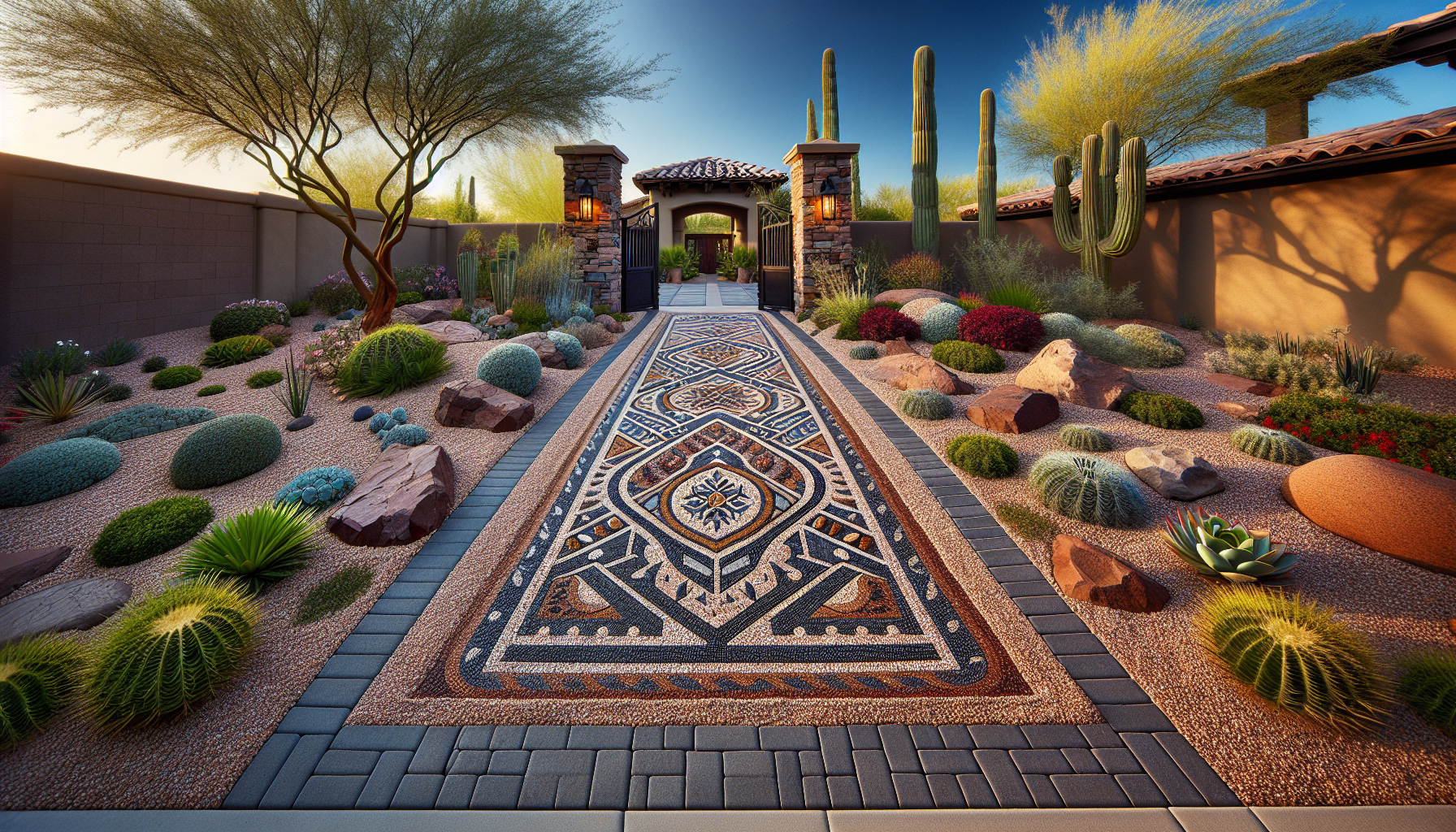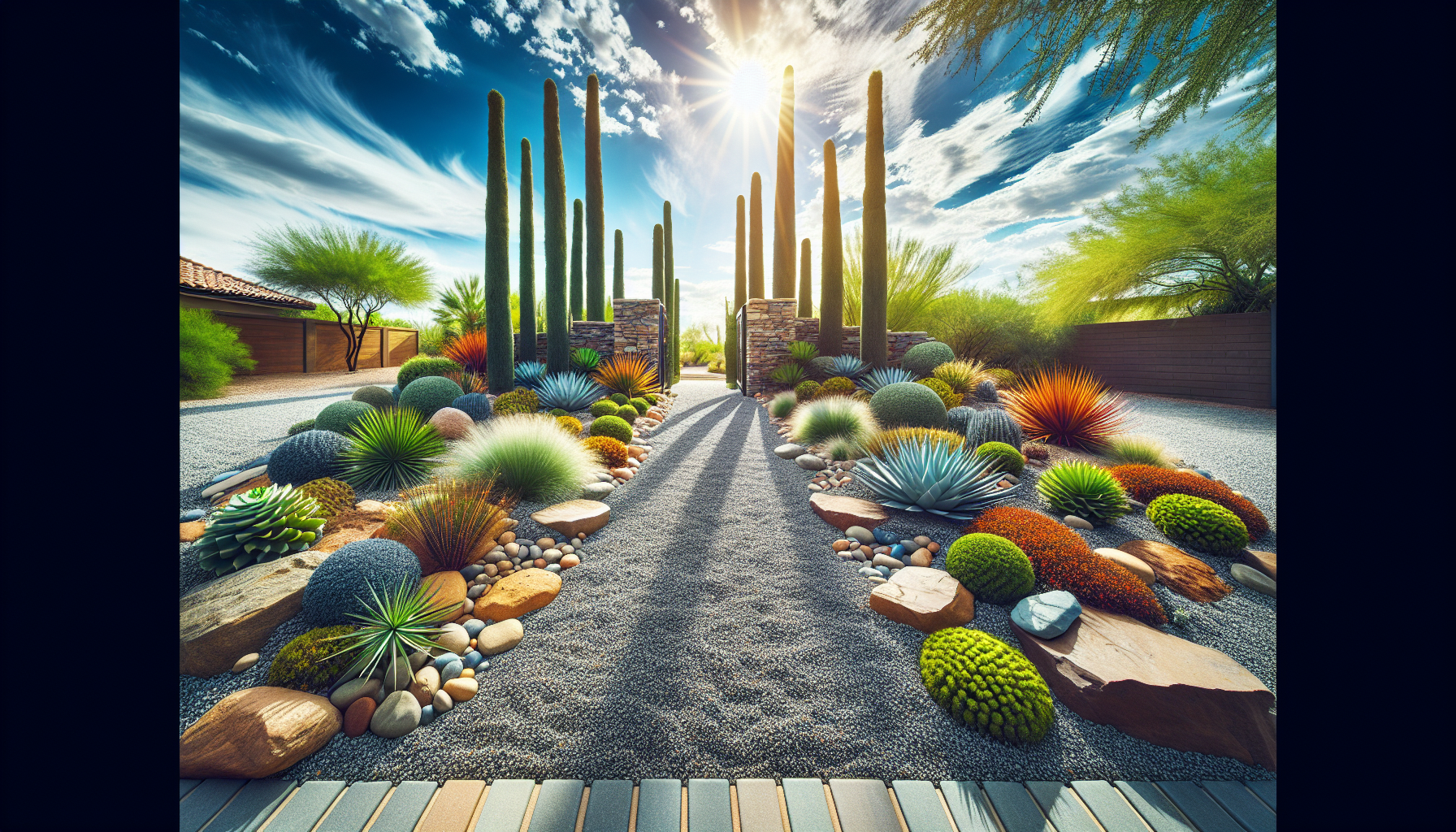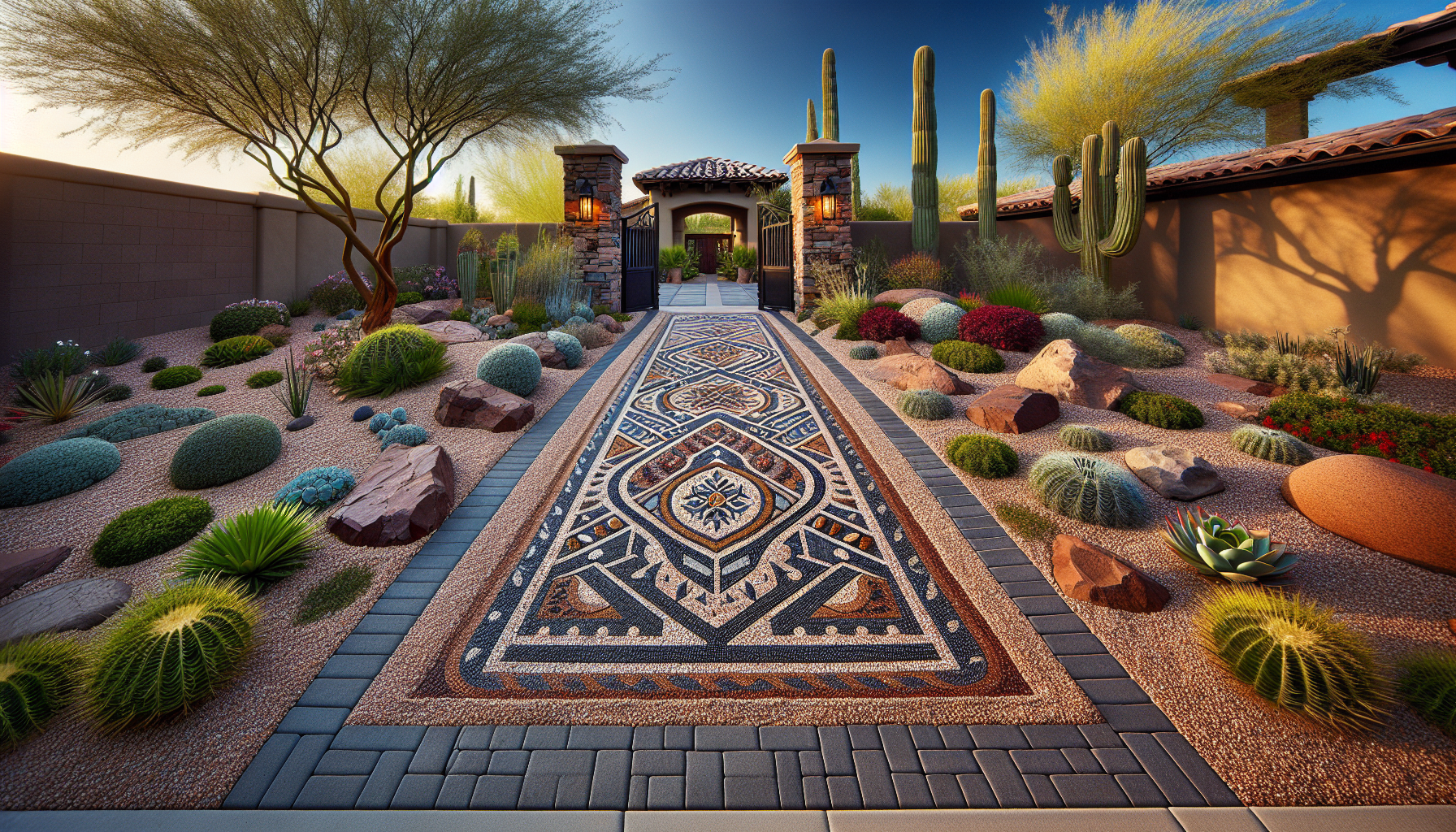What do you think makes a neighborhood feel welcoming and functional? Is it the greenery, the well-paved roads, or the beautifully designed yards? In many communities, including Tempe, Arizona, hardscaping plays an essential role in creating inviting outdoor spaces that are both practical and aesthetically pleasing.
Located just east of Phoenix, Tempe is known for its vibrant culture, bustling communities, and stunning desert landscapes. Whether you’re wandering along the lakeside, enjoying one of the city’s many parks, or experiencing the energetic atmosphere around Arizona State University, it’s hard not to notice the careful landscaping that enhances the charm of the area. Streets lined with attractive walkways, patios, and outdoor features contribute to the city’s overall appeal. Hardscaping, which encompasses non-plant elements such as patios, pathways, retaining walls, and more, is crucial in stabilizing landscapes, particularly in areas with gravel.
Let’s explore how you can utilize hardscaping for gravel stabilization, bringing both functionality and beauty to your outdoor spaces in Tempe.
Understanding Hardscaping
Hardscaping consists of all the hard materials utilized in landscaping. Whereas softscaping refers to the living elements, such as plants and trees, hardscaping includes structures like:
- Patios
- Walkways
- Decks
- Fences
- Retaining walls
Incorporating hardscaping into your design helps define outdoor spaces while also enhancing usability.
Why Choose Gravel for Landscaping?
Gravel is a versatile material often used in landscaping for paths, driveways, or decorative elements in gardens. Here’s why gravel is a popular choice:
-
Drainage: Gravel allows water to drain easily, preventing puddles and helping to manage rainwater effectively. This is particularly valuable in Tempe’s arid climate, where water scarcity necessitates smart land use.
-
Cost-Effective: Compared to other materials such as concrete or brick, gravel is generally more affordable. You’ll find that maintaining a gravel path or driveway requires fewer resources over time.
-
Aesthetic Appeal: Gravel comes in various sizes and colors, allowing you to customize your outdoor space according to your vision and theme.
Given these benefits, it’s no wonder many homeowners in Tempe choose gravel for their landscaping needs. However, without appropriate stabilization, gravel can shift and become uneven, leading to a less desirable look.
The Importance of Gravel Stabilization
Gravel stabilization is vital for preserving the integrity and appearance of your landscape materials. Unstable gravel can lead to:
- Uneven paths
- Weeds growing through the gravel
- Erosion during heavy rains
By stabilizing the gravel, you create a more durable and functional surface, enhancing both accessibility and aesthetics.
Methods of Stabilizing Gravel
There are several effective methods you can apply to stabilize gravel. Here’s a quick overview:
-
Geotextile Fabrics: These fabrics can be installed beneath your gravel to provide a physical barrier that prevents shifting.
-
Gravel Stabilization Grids: These grids are designed to support the gravel and keep it in place. They come in various forms, including plastic and metal options.
-
Incorporating Edging: Installing edging materials like stone or wood can help maintain gravel boundaries, preventing spreading.
-
Compaction: Compacting the gravel creates a denser surface, reducing shifting over time.
Each of these options can help keep your gravel in place while enhancing your landscape’s overall appearance.

Key Considerations for Hardscaping
When planning to add hardscaping elements for gravel stabilization, several factors should guide your decisions.
Aesthetic Integration
Consider how hardscaping elements will blend with your existing landscape. Choose materials and colors that complement your home and surrounding environment.
Functionality
Assess what the area will be primarily used for. If it will be a pathway, ensure it is wide enough for foot traffic. For a driveway, consider the weight and traffic it will endure.
Local Climate
With Tempe’s hot, arid climate, select materials that can withstand temperature fluctuations. Ensure that the gravel can manage heat retention and that edges can endure potential shifting from soil movements.
Steps to Create a Gravel Stabilized Area
If you’re ready to implement hardscaping for gravel stabilization, follow these steps for a successful project.
Step 1: Planning Your Layout
Begin by sketching your desired layout. Make notes on areas that will require paths, driveways, or decorative sections. Ensure the layout works with your yard’s flow and functionality.
Step 2: Choosing the Right Gravel
Select a type of gravel that suits your needs. Smaller gravel offers a smoother appearance, while larger stones provide a more rustic look. Ensure the color and texture aligns well with your yard and home.
Step 3: Installing Geotextile Fabric (Optional)
If using geotextile fabric, lay it down in the designated area. This helps prevent weed growth and gravel displacement.
Step 4: Laying the Gravel
Pour the gravel over the prepared area. Ensure even distribution, filling corners and edges adequately.
Step 5: Compaction
Once the gravel is spread out, compact it using a mechanical plate compactor for even density. This step is crucial to minimize gravel movement over time.
Step 6: Adding Edging (Optional)
Consider installing stones or landscape timbers along the perimeter to keep gravel contained and enhance the visual appeal of your project.
Step 7: Maintenance
Regularly check your gravel area for any uneven spots or weed growth. Perform touch-ups as necessary to maintain the appearance and integrity of the stabilized area.

Common Mistakes to Avoid
When enhancing your property with gravel stabilization, it’s helpful to know what pitfalls to avoid. Here are common mistakes that could hinder your project:
-
Omitting Drainage Planning: Without proper drainage, water can accumulate and lead to erosion.
-
Using Poor Quality Gravel: Using cheap or subpar gravel can result in a less attractive look and require more upkeep.
-
Neglecting Edging: Failing to incorporate edging might lead to runaway gravel spreading into your garden or lawn.
-
Skipping Compaction: Not compacting the gravel properly can leave you with an unstable surface that shifts easily.
Best Practices for Gravel Project Success
Following these best practices will help ensure your gravel stabilization project goes smoothly.
Research Local Regulations
Before starting, understand any local regulations regarding landscaping and hardscaping. This can help avoid any surprises that could delay your project.
Consult with Professionals
If you’re unsure about any steps, consider consulting with professionals who can provide expert advice and assistance.
Invest in Quality Materials
Opting for high-quality materials will pay off in the long run. Though it might cost more upfront, superior materials mean reduced maintenance and a better appearance.
Create a Maintenance Schedule
Develop a routine for checking and maintaining your gravel areas. Regular upkeep ensures that they continue to look good and function effectively.
Conclusion
Implementing hardscaping for gravel stabilization is an excellent way to enhance your outdoor space while providing functionality. Tempe homeowners can substantially benefit from these techniques, creating aesthetically pleasing and durable landscapes.
If you’re considering your options in hardscaping, look no further than Xclusive Home Services. They specialize in transforming your vision into reality, ensuring you get the most from your investments.
Contact Information
For all your hardscaping needs, reach out to:
Xclusive Home Services
14505 N. Hayden Rd., Ste. 101
Scottsdale, AZ 85260
Phone: (602) 341-5545
Email: management@xclusivehomeservicesco.com
Founded in 2025, Xclusive Home Services is ready to assist with all your landscaping desires. Whether you’re looking to improve your outdoor appeal or stabilize gravel pathways, their team is equipped to deliver exceptional service.
With the right approach to hardscaping, your yard can reflect your personal style while being practical and inviting. Enjoy creating a space that you can be proud of all year round!

